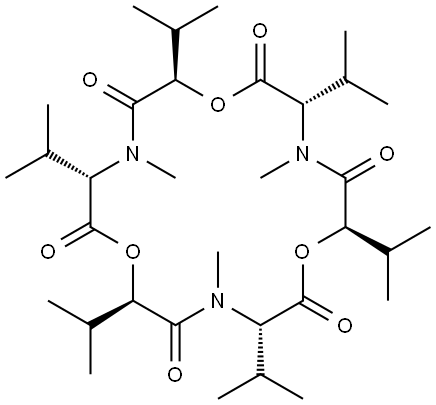Enniatins are cyclichexadepsipeptides commonly isolated from fungi. Many act as ionophores, forming pores in cellular membranes to allow selective ion transport. Enniatin B is a relatively poor ionophore with some capacity to facilitate import of K+ and Na+ across membranes. It inhibits the pleiotropic drug resistance protein 5 (Pdr5p) in yeast. Through this mechanism enniatin B, at concentrations as low as 0.8 μM, augments the ability of cerulenin or cycloheximide to impair cell proliferation in cells overexpressing Pdr5p, an effect that is not observed in cells lacking Pdr5p. Like other enniatins, enniatin B inhibits acyl-CoA: cholesterol acyltransferase (IC50 = 113 μM), blocking cholesteryl ester formation. Enniatin B (1 μM) also increases caspase activity and induces apoptosis in H4IIE hepatoma cells and, when mixed with other enniatins, alters p53 signaling in human cancer cells.

